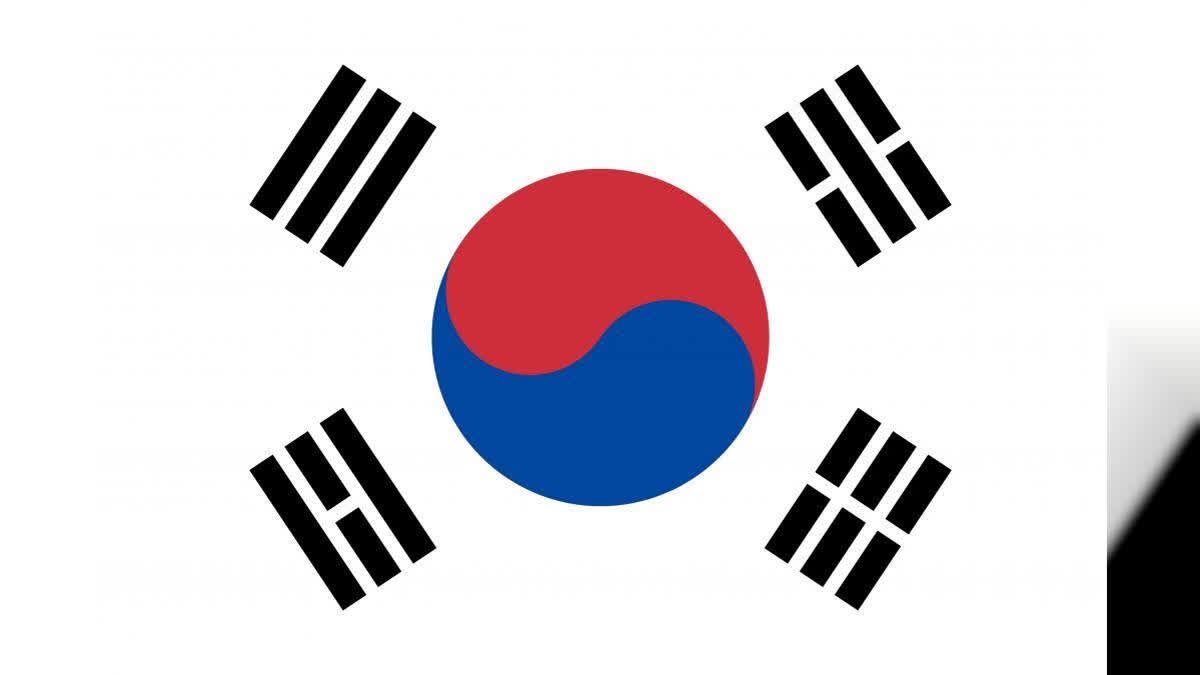New Delhi: The Korea International Cooperation Agency (KOICA) has taken a significant step in strengthening India's vocational education system by deciding to introduce the Meister school curriculum.
According to a report in The Korea Post, KOICA announced on Tuesday that it will invest $2 million by 2027 to launch a large-scale initiative aimed at enhancing India's vocational and technical education capabilities.
"This marks the first-ever grant-based development cooperation project between South Korea and India, aligning with the Indian government's 'Make in India' campaign, which aims to boost the country’s manufacturing sector," the report states.
"At the heart of this initiative is the introduction of mechatronics into India's secondary vocational education system. Mechatronics – a multidisciplinary field combining mechanical engineering, electronics, and computer science - has been a cornerstone of South Korea’s Meister high schools, tailored to meet the demands of evolving industries. This pilot programme will provide Indian students with the opportunity to acquire cutting-edge skills, preparing them to compete in a globalised economy."
Renowned for its success in transforming South Korea into a global skills powerhouse, the Meister model emphasises industry-aligned training and career-focused education. Its introduction in India will mark a pivotal moment in addressing the country's growing need for a skilled workforce to drive its economic growth and global competitiveness.
According to The Korea Post report, KOICA plans to finalise the project’s execution details by signing a memorandum of understanding with India’s National Council of Educational Research and Training (NCERT) in March. The collaboration will also include the establishment of an associate degree programme at a national institute of technology in India, with additional initiatives to be identified as the partnership progresses.
"This initiative goes beyond exporting an education model," the report quoted a KOICA official as saying. "It represents a convergence of South Korea’s expertise in vocational education and India's ambitious manufacturing growth strategies. We look forward to building a sustainable partnership with India."
What are the key objectives of the Meister school programme?
According to a 2012 research report by The McKinsey Global Institute, the lifetime value of a South Korean college graduate's improved earnings no longer justifies the expense required to obtain the degree. Also highlighted in the report was the need for more vocational education to counteract the human cost of performance pressure and the high unemployment rate among the country’s university-educated youth.
The South Korean government, schools, and industry, with assistance from the Swiss government and industry, are now redesigning and modernising the country's once strong vocational education sector with a network of vocational schools called "Meister schools".
The purpose of the Meister schools is to reduce the country's shortage of vocational occupations such as auto mechanics, plumbers, welders, boilermakers, electricians, carpenters, millwrights, machinists and machine operators as many of these positions go unfilled. Meister schools have been developed to revamp South Korea's vocational education system to be specifically designed to prepare youths to work in high-skilled trades and high-skilled manufacturing jobs and other fields.
The schools are based on the German-style Meister schools, to teach youngsters to become masters of a skilled trade. Meister schools were set up to tackle the nation's high youth unemployment rate as millions of young South Korean university graduates remain idle instead of taking up a trade while managers of small and medium businesses complain of skilled trade shortages.
What is the structure of the Meister schools?
Meister schools offer a curriculum that is heavily focused on practical training. About 70 per cent of the learning is hands-on, with the remaining 30 per cent dedicated to foundational academic subjects. Students are trained in industries such as robotics, electronics, biotechnology, automotive engineering, and more.
These schools collaborate closely with industries to design and update curricula. Industry partners provide mentorship, internships, and real-world project opportunities, ensuring students graduate with relevant skills.
Admissions to Meister schools are competitive. Students are selected based on their aptitude for vocational training, ensuring a motivated and capable cohort.
Graduates of Meister schools are directly absorbed into industries, bypassing the need for higher education in most cases. Some also receive opportunities to pursue advanced training while employed.
What are the important features of South Korea’s Meister schools programme?
The South Korean government provides financial and policy support to Meister schools, ensuring they have state-of-the-art infrastructure, well-trained faculty, and a robust industry network. Students in Meister schools often receive scholarships and stipends to encourage participation. The cost of vocational education is largely subsidised to make it accessible to all.
The programme benchmarks itself against global vocational training standards, integrating advanced technologies and best practices into the curriculum. Meister graduates are considered "masters" in their respective fields, elevating the societal value of vocational education. They are celebrated as contributors to South Korea's industrial success.
What has been the impact of the Meister schools programme on South Korea’s economy?
The programme has contributed to South Korea’s transformation into a global manufacturing and technological hub. It has ensured a steady supply of skilled workers for high-tech and emerging industries. Meister graduates have high employment rates, often exceeding 90 per cent. They secure jobs in prestigious companies and sectors that drive the economy.
The programme has successfully elevated the status of vocational education, making it an attractive and respectable option for students and families. It evolves with market trends, adding new fields of training as industries shift towards green energy, Artificial Intelligence, and other cutting-edge technologies.
To sum up, South Korea's Meister schools programme exemplifies how vocational education can drive economic development, enhance individual livelihoods, and build a globally competitive workforce. Its principles and practices serve as a model for a nation like India as it seeks to implement similar initiatives to meet its growing industrial and economic aspirations.



